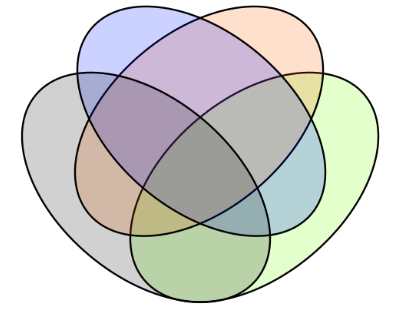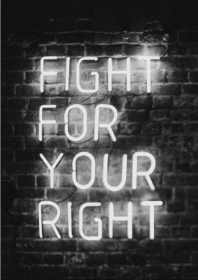Module 2 - Unit 5: Person-Centered
Core Principle: Person-Centered
“Peer recovery support services are always directed by the person participating in services. Peer recovery support is personalized to align with the specific hopes, goals, and preferences of the individual served and to respond to specific needs the individuals has identified to the peer worker” (SAMHSA, 2015).
Personal & Social Identity
Activity: Everyone has their own unique identities, experiences, values, and ethics that influence their daily choices and long-term decisions.
Take a few minutes to fill in this identity wheel or write down your identities using this as a guide.
Where do you find commonality and differences with your peers? How might this impact your role as house manager and/or peer? Consider these questions as you read through the next slides.

Person Centered Approaches
People with racial/ethnic diverse backgrounds
Considerations:
- The opioid epidemic has largely ignored the SUD needs of racially minoritized communities, despite the increase in drug overdoses and SUD criminalization.
- Racially minoritized communities often receive punishment rather than treatment and recovery support for substance use disorders.
- Since the War on Drugs campaign, an attack on racially minoritized communities has led to disruption of family households and high rates of incarceration for drug-related offenses.
- Cultural mistrust, stereotypes and stigma play a huge role in attitudes and behaviors surrounding systems and treatment.
Source: Nordstrom & Marlowe (2016); SAMHSA (2020a); SAMHSA (2020c)
Person Centered Approaches
People with racial/ethnic diverse backgrounds
Recommendations:
- Recovery homes can develop an environment that challenges bias and stereotypes and promotes understanding, treatment, and recovery.
- Housing providers should review policies and procedures, ensuring they are culturally-sensitive to racialized communities and ensuring messaging on support and recovery are the focus rather than punitive measures.
- Housing staff and clients should understand that “addiction is beyond the [brain and the individual] – it’s the criminal justice system, daily life, the neighborhood – all have an impact on outcomes in addiction treatment…”
Source: SAMHSA (2020a); SAMHSA (2020c)
Stevie Rae’s Story
Stevi Rae shares her struggles with prescription opioids after a car crash and how sharing her story with other Alaska Natives helped her recovery. Watch this brief clip here:
“It’s really something else to be able to heal with your own people. It’s so empowering. There is hope.”
Client Centered Approaches
Lesbian, Gay, Bisexual, Transgender, Queer, Two-Spirit, Intersex (LGBTQ+) Community Members
Facts and stats:
- Gender & sexual minoritized (GSM) individuals face unique barriers due to lack inclusive treatment, pregnancy and childcare-related needs, and histories of trauma and victimization.
- LGBTQ+ individuals may have used substances to cope with everyday experiences of discrimination and victimization based on their gender or sexuality.
- While there have been efforts to improve this, some SUD programs often do not support parents with children (lack of childcare) and it may be difficult to find substance use treatment programs that meet specific needs of LGBTQ+ people, women, and nonbinary individuals.
Source: National LGBTQ Health Education Center; SAMHSA (2020a)
Person Centered Approaches
Recommendations:
- Pregnant people with co-occurring disorders and LGBTQ+ individuals have reported a strong need for safe and supportive environments to help in their recovery, including gender affirming language.
- Provide training to staff and clients on the safety of pregnant people on MOUD.
- Develop staff understanding of behavioral and emotional changes that occur during post-partum depression.
- Develop a cultural understanding of trauma-informed care, particularly how stress and past trauma can impact attitudes and behaviors as well as developing appropriate response strategies that are non-punitive.
Client Rights & Grievances
As a reminder, clients have a right to safe, supportive housing. You can help clients file a grievance or complaint if they have experienced mistreatment or discrimination.
- File a grievance with AzRHA online:
- Those who live in a recovery home certified by AzRHA can file a grievance online: https://myazrha.org/file-a-grievance
- File a charge or civil action:
- Southwest Fair Housing Council: https://housing.az.gov/have-you-been-discriminatedagainst-when-making-your-housing-choice
Resource: For more information about rights and grievances, check out our poster here. You can print and post this in a common area for all recovery home clients to access.

Key Takeaways
- Supportive recovery environments provide welcoming and affirming spaces for individuals from all backgrounds and walks of life.
- While addiction can impact anyone, some communities have more or fewer resources than others.
- It’s not just about “treating everyone the same,” but it is about treating everyone with respect and meeting everyone where they are at.
- We all have so much to learn together – about ourselves, and one another. Embrace it!

